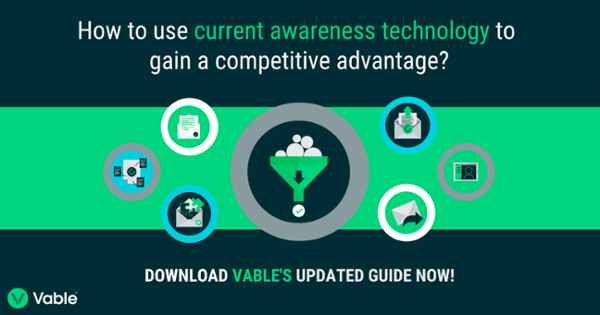Share this
The one thing that surprised me about being a librarian…
November 29, 2017

The one thing that surprised me about being a librarian is that while we serve many knowledgeable people, our value still resides in our ability to mediate between the collection and the people we serve. As Librarians, we can be confident that we remain experts in knowing where the right information can be found, to the point where we can legitimately train our clients in research skills.
Library as a Collection
I am currently reading a terrific book, Stuart Kells’ The Library: A catalogue of Wonders. As its blurb says, it is “a love letter to libraries and their makers and protectors” and examines libraries, public and private, across history and geography.
But as I was reading it, I realised that the author brought the perspective of a non-librarian to the topic and indeed, Stuart Kells’ evident passion for libraries comes from being an author and book trade historian. His book entirely focusses on the library as a collection – a collection of books in most instances, or clay tablets or papyrus scrolls or even digital information towards the end. When most people think about a library, they think firstly of the collection held by the library. This would include many librarians, especially relatively early in their career.
Over the years, I have come to realise that there is library as collection. There are those who use that collection. And as the intermediary, there is the Librarian.
The Librarian as an Intermediary
Nowadays, we are told that search ought to be intuitive. Like me, many Librarians are working with a collection focussed on a topic in which our clients are professional specialists; in my case a legal collection for use by lawyers. In such an environment, we might doubt our role as intermediaries. If we need to mediate between the library collection and our client, is that a sign that our library has somehow fallen short of the ideal of intuitiveness? And surely our professional clients know how to find their way around a library collection?
About a decade ago, I gained the rare opportunity to establish a library when I was hired as the inaugural Librarian at Meyer Vandenberg. The firm had a collection of books, sorted by a classification system unique to the firm, along with an eclectic assortment of online services. There had been various acquisitions over the years, but little weeding. There were two ways to properly borrow a book and therefore neither was used.
It was fortuitous that the collection needed a fair bit of work, as this was safe territory. I did not have to confess to anyone that I had never set foot in a law school and could just focus on those things at which Librarians undeniably excel. Such as getting the collection well-ordered and working seamlessly as one collection across different formats.
However, from the first day, I also offered a reference service, building on the legal reference training I had gained and utilised in my previous position. The first time I was asked to find a case a lawyer could not find, I was amazed that I could actually find it. How could this happen? Surely as a lawyer, he could find a case? I knew our lawyers had a much more solid understanding of the law than I did, yet I quickly found that people turned to me to find cases, legislation and commentary.
Law vs. Legal Research
A breakthrough moment came when, about 18 months into working at Meyer Vandenberg, I heard a paper from Ruth Talbot-Stokes from the University of Newcastle. She recounted a moment when a final year law student interrupted a legal research class to ask about the most basic of legal research concepts. The paper went on to consider the knowledge gap between legal research required at law school and legal research required in a law firm.
This was a lightbulb moment for me. The lawyers I work with are focussed on doing law, not doing legal research. They can find “stuff” but whether it is the right “stuff” required for their job is another question. This was strongly brought home when I was asked to run a training session on finding cases, because a junior staff member had been given the task of gathering cases as cited in law reports for an upcoming court case. Three hours later, the staff member proudly delivered the cases to the lawyer, who found that every case was from a free, open legal information resource. There is a place for using such legal resources but not when locating cases published in law reports.
So nowadays, I run regular sessions on finding cases and legislation and also on undertaking legal research using the resources available at Meyer Vandenberg, both formally and informally. This morning, I sat down with an intern in her third year of university and worked through some new concepts for her, such as finding the authoritative source and working out what the key information might be on a given topic. This was relatively high level training compared with some training I offer, as I have found that there are very few research concepts too basic to impart during a research training session.
I run training not because our collection is inadequate, though we do need to be selective about our books and our online subscriptions. Nor because it is less intuitive than other libraries, though some search engines will always require explaining! It is because legal research, as with all research, is complex. While our lawyers are outstanding at legal interpretation, I am the person with daily experience and therefore expertise in legal research.
As Librarians, our key expertise lies not only in the ordering of the collection but also in how to use it; once we understand that, we gain the confidence to offer research training using our library’s collection. Through research training, our clients gain a better understanding of the library and how to use it. In addition, their confidence in our ability to find the best information also increases, as I have found through demand for the reference service increasing yearly. In other words, once you have the confidence in your abilities as a researcher, such that you are willing to offer research training, you become a true intermediary between the collection and your clients and reach the essence of “doing library”.
Share this
- January 2026 (1)
- December 2025 (2)
- November 2025 (2)
- October 2025 (3)
- September 2025 (2)
- August 2025 (2)
- July 2025 (4)
- June 2025 (3)
- May 2025 (2)
- April 2025 (1)
- March 2025 (1)
- October 2024 (1)
- July 2024 (1)
- June 2024 (2)
- May 2024 (2)
- April 2024 (3)
- March 2024 (3)
- February 2024 (4)
- January 2024 (2)
- December 2023 (1)
- November 2023 (2)
- October 2023 (2)
- September 2023 (1)
- August 2023 (3)
- July 2023 (5)
- June 2023 (2)
- May 2023 (2)
- April 2023 (4)
- March 2023 (1)
- February 2023 (1)
- January 2023 (2)
- November 2022 (2)
- September 2022 (2)
- August 2022 (2)
- July 2022 (1)
- June 2022 (1)
- May 2022 (2)
- April 2022 (3)
- March 2022 (1)
- February 2022 (2)
- December 2021 (2)
- November 2021 (2)
- October 2021 (2)
- September 2021 (2)
- August 2021 (2)
- July 2021 (2)
- June 2021 (2)
- May 2021 (1)
- April 2021 (2)
- March 2021 (1)
- February 2021 (3)
- January 2021 (2)
- November 2020 (3)
- October 2020 (1)
- August 2020 (2)
- July 2020 (4)
- June 2020 (1)
- May 2020 (1)
- April 2020 (2)
- March 2020 (2)
- February 2020 (3)
- January 2020 (1)
- December 2019 (2)
- November 2019 (1)
- October 2019 (1)
- September 2019 (1)
- August 2019 (3)
- July 2019 (3)
- June 2019 (3)
- May 2019 (2)
- April 2019 (1)
- March 2019 (2)
- February 2019 (3)
- January 2019 (3)
- December 2018 (1)
- November 2018 (2)
- October 2018 (2)
- September 2018 (1)
- August 2018 (2)
- July 2018 (1)
- June 2018 (2)
- May 2018 (3)
- April 2018 (3)
- March 2018 (1)
- February 2018 (3)
- January 2018 (1)
- November 2017 (1)
- October 2017 (1)
- July 2017 (1)
- April 2017 (2)
- March 2017 (3)
- February 2017 (1)
- January 2017 (1)
- November 2016 (2)
- October 2016 (1)
- September 2016 (1)
- August 2016 (2)
- June 2016 (1)
- May 2016 (1)
- April 2016 (1)
